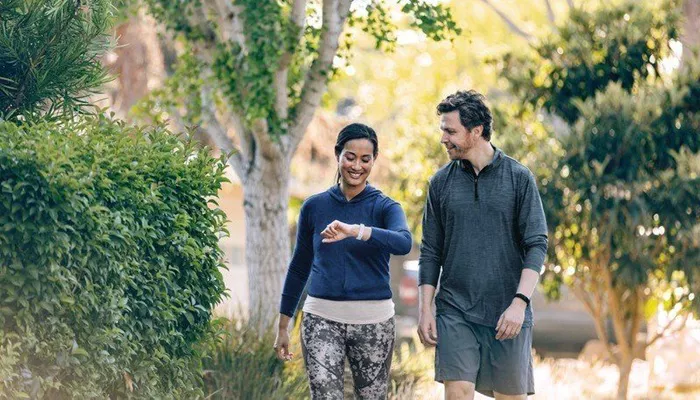A few weeks ago, I noticed something strange: my Oura ring’s step count dropped sharply. I was going to the gym six days a week, walking a lot, and running errands, but my step numbers didn’t add up.
I wasn’t imagining it. Jason Russell, Vice President of Consumer Software Product at Oura, later confirmed that about 2 to 4% of users experienced a bug. This bug caused the device to misread smaller walking patterns.
Since I am just under five feet tall, this explained why my steps were undercounted.
The glitch has now been fixed. But that was only the start. Today, Oura announced a major software update with new features that improve fitness and activity tracking.
If you use Apple, Fitbit, or Whoop, this is important news. Oura is launching new features that could change the fitness tracking game.
The update improves movement tracking with greater accuracy and better functionality. It also cleans up user data.
During an interview with Russell, I asked about how Oura compares to competitors like Apple, Fitbit, and Whoop. He said they don’t focus on other brands. Instead, they measure their accuracy against medical standards.
The biggest change is a new, machine-learning-based step-counting algorithm. This makes Oura’s step counts as accurate as a pedometer. It removes false steps, such as those caused by typing or riding a motorcycle, so the step totals reflect real movement.
“Users kept saying, ‘I don’t trust these numbers,’” Russell explained. “This update restores that trust.”
Oura also now imports heart rate data from Apple Health and Google Health Connect. This fixes gaps in Readiness and calorie tracking.
“We think this will be a game changer,” said Russell. “It will help people get credit for the work they really do.”
Other notable upgrades include:
Ability to edit or add activities from up to seven days ago
24/7 activity tracking, even between midnight and 4 a.m.
A new active minutes trend view, with the option to adjust heart rate zones based on your maximum heart rate
GPS-based running splits for detailed walking and running insights
Partnerships with CorePower Yoga, The Sculpt Society, Technogym, and Open
It’s clear that Oura is listening to its users and taking action.
Oura’s Commitment to Accuracy Sets It Apart
This update offers many new features, but Oura’s real strength lies in its focus on accuracy.
Russell highlighted that Oura’s sensor placement on the finger is optimal for accurate heart rate measurement. He added that the device avoids screens, buzzes, or other distractions to provide quiet, effective tracking.
Even for difficult measurements like step count or calories burned, Oura uses scientific methods. Its sleep tracking matches the clinical gold standard, polysomnography, with 80% accuracy.
“All wearables estimate,” Russell said. “But we have reduced our error margin by 61%.” This precision is not just a number — it builds user trust.
As the wearable market becomes more competitive, Oura aims to lead the wellness space. With better data, smart partnerships, evolving AI tools, and a growing user base, Oura is poised to challenge the big players.
If longtime users like me already notice the improvements, Apple, Fitbit, and Whoop should be paying attention.

